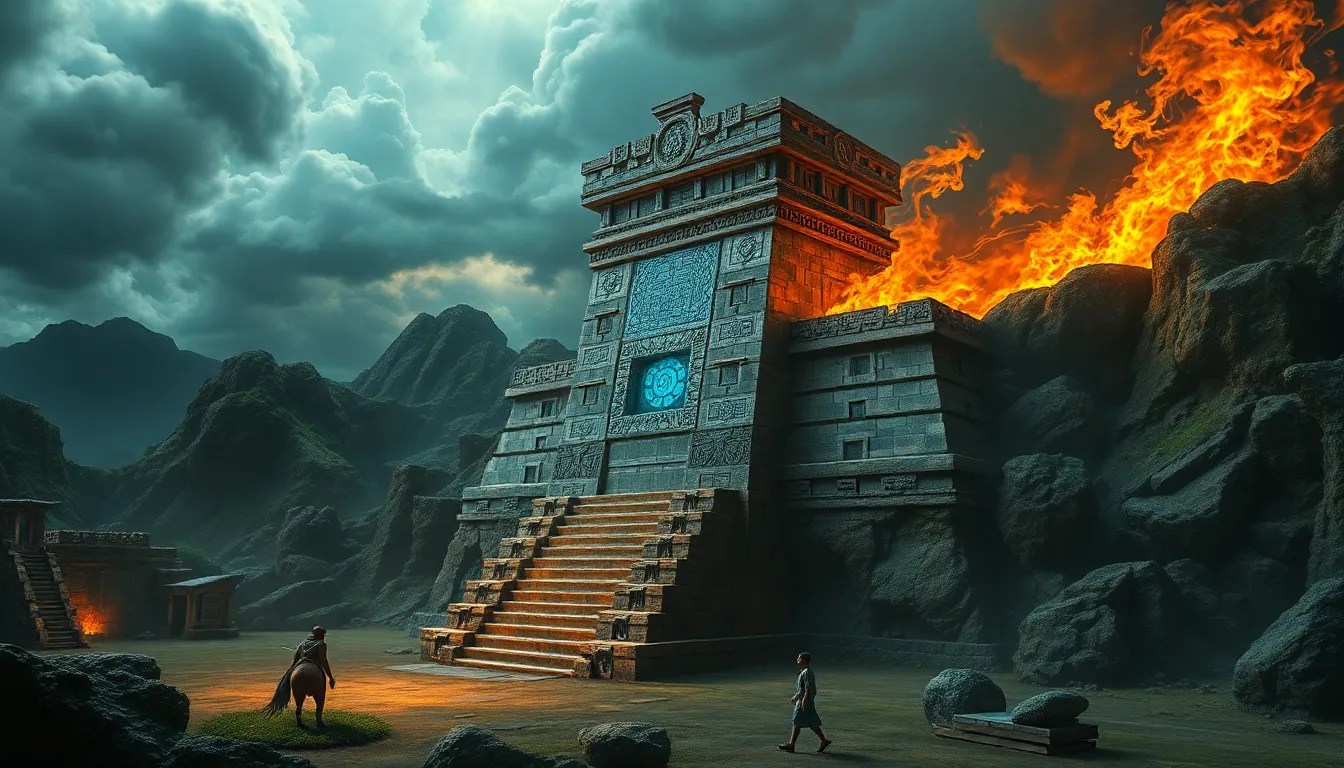The Connection Between Mayan Myths and Modern Science
I. Introduction
Mayan mythology is a rich tapestry of stories, beliefs, and cultural practices that shaped the ancient civilization of the Maya. These myths not only provided explanations for the natural world but also served as a framework for understanding life, death, and the cosmos. Exploring the intersection of mythology and science offers profound insights into how ancient peoples perceived their environment and how those perceptions align with contemporary scientific understanding.
This article aims to delve into the connections between Mayan myths and modern science, illustrating how ancient knowledge systems can inform and enrich our current understanding of various fields, from astronomy to ecology.
II. The Role of Myths in Mayan Culture
Mythology played a central role in Mayan culture, serving as a cultural framework that guided social norms, rituals, and worldviews. Mayan myths often revolved around key themes such as creation, nature, and the cosmos, reflecting the society’s deep relationship with their environment.
Key themes in Mayan myths include:
- Creation: Stories about the origins of the world and humanity.
- Nature: The relationship between humans and the natural world, including animals and plants.
- The Cosmos: The role of celestial bodies and events in shaping earthly existence.
These themes highlight the Mayans’ understanding of their world as interconnected, emphasizing the importance of harmony between humans, nature, and the cosmos.
III. Ancient Mayan Knowledge and Astronomy
The Mayans were exceptional astronomers who meticulously observed celestial bodies and events. Their sophisticated understanding of astronomy is exemplified by the Mayan calendar, which accurately tracked solar and lunar cycles.
Key aspects of Mayan astronomy include:
- The Mayan Calendar: Comprising the Tzolk’in (260 days) and the Haab’ (365 days), this calendar reflects their astronomical knowledge and spiritual beliefs.
- Celestial Events: Eclipses, solstices, and equinoxes were significant in Mayan myths, often interpreted as messages from the gods.
Modern astronomical findings continue to validate many of the Mayans’ observations, showcasing their advanced understanding of the universe.
IV. Agriculture and Ecological Understanding
Agriculture was the backbone of Mayan civilization, and many myths focused on themes of fertility, growth, and the life cycle. These agricultural myths were not merely symbolic; they reflected the Mayans’ intimate knowledge of their environment.
Some significant points include:
- Myths of Fertility: Stories that celebrated the cycles of planting and harvesting, emphasizing the importance of rain and soil quality.
- Ecological Practices: The Mayans practiced sustainable agriculture, using techniques such as slash-and-burn and terracing that resonate with modern ecological principles.
This understanding of nature and agriculture is a crucial part of their mythology, highlighting the connection between cultural beliefs and environmental stewardship.
V. Medicine and Healing Traditions
Mayan myths also encompass beliefs surrounding health, illness, and healing. These stories often depicted the interactions between humans and supernatural beings, explaining the causes of disease and the means of healing.
Key elements include:
- Mythical Explanations: Illnesses were often attributed to the displeasure of gods or the influence of spirits.
- Herbal Medicine: The Mayans utilized a vast array of plants for medicinal purposes, many of which have been validated by modern science.
The relevance of these traditional healing practices remains significant today, with many contemporary treatments derived from ancient Mayan knowledge.
VI. Water Management and Environmental Stewardship
Water was regarded as sacred in Mayan culture, and numerous myths emphasize its importance in sustaining life. The ancient Mayans developed advanced engineering techniques for water management, crucial for their survival in a challenging environment.
Points to consider include:
- Myths of Water: Stories that highlight the sacredness of rivers, lakes, and rainfall, often personifying water as a deity.
- Engineering Marvels: The construction of reservoirs, canals, and aqueducts demonstrates their advanced understanding of hydrology.
These ancient practices offer valuable lessons for contemporary environmental challenges, particularly in the context of water conservation and management.
VII. The Psychological and Philosophical Insights of Mayan Myths
Mayan myths delve into existential themes, exploring the nature of existence, the afterlife, and the human condition. These stories serve as a means of understanding life’s complexities and uncertainties.
Key insights include:
- Existential Themes: Myths often grapple with questions of fate, free will, and the cyclical nature of life and death.
- Psychological Connections: The themes in Mayan mythology resonate with modern psychological theories, such as those proposed by Carl Jung regarding archetypes and the collective unconscious.
This interplay between myth and psychology underscores the enduring relevance of these ancient stories in exploring the human experience.
VIII. Conclusion
The connections between Mayan myths and modern science reveal a rich interplay of knowledge that transcends time. From astronomy to agriculture, the insights gleaned from Mayan mythology continue to inform and inspire contemporary thought.
Integrating traditional knowledge with modern scientific practices can lead to a more holistic understanding of our world, emphasizing the importance of sustainability and respect for nature. As we reflect on the enduring legacy of Mayan mythology, we recognize its potential to guide us in addressing the challenges of the modern world.



